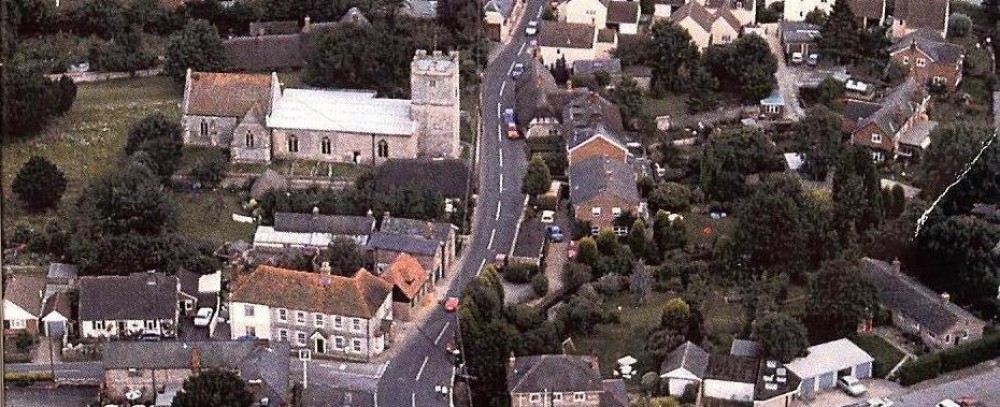Christmas 1914 was over and Kate Turnell (née Loader) was very worried because she had not received any news from her beloved George in weeks. They had married in the summer of 1910 in the village church, St Peter’s, and she was used to his absences when he was at sea. She knew that, though he loved being in the Navy, his heart was with her and that he would be at her side as soon as possible.
Kate used to set aside a couple of hours twice a week to write to him and had regularly received loving replies which she looked forward to enormously. Now the war had been going on for months, and although the gossip in the village had once been that it would be all over before the festivities began, there was still no sign of a cessation.
Until recently George had been relatively safe and sound as he had been based in HMS Vernon – onshore in Portsmouth – had been able to get home to her quite often. Since he had embarked on the ship HMS Lynx in June this year, however, she had no idea where he was or when she would next see him. On his last weekend leave he had seemed subdued and not quite his cheerful self, though he gave no explanation for this. In the latest letter she had received from him when the ship had gone to sea, all he could tell her was that it was heading ‘somewhere in the North Sea’.
Both of Kate’s brothers, Freddie and Bert, had recently joined the Army and were now in training and would probably be serving somewhere in Europe very soon. They had both looked forward to ‘doing their bit’ for King and Country along with their pals, much to their Mum’s and Dad’s mixed feelings.
Kate had gone back to live with her parents at the cottage in New Barn Farm: staying and helping them seemed to be the most sensible thing to do while George and her brothers were away, though she still rented a small cottage nearby for when her husband came home.
On Sundays, when Kate attended services at St Peter’s with her Mum and Dad, it had become noticeable that there were fewer young men in the congregations and that the parents and sweethearts of the lads were subdued. After church some folk were discussing letters that they had received from their older sons in which they had described the dreadful conditions in which they were fighting.
Even though these were professional soldiers, many having fought previously in the Boer War, they had never experienced the long, cold nights with continuous driving rain, the muddy trenches in which they huddled being permanently pumped out. They wrote of the horrors of seeing their comrades injured or even dying alongside them.
The villagers had heard of the death of Sidney Gunnell in Flanders, and were sympathetic to the worried parents and family of Fred Day, also serving in Flanders, who had just been notified by the authorities that he had been ‘missing’ since October and had now been pronounced dead.
The parents and wives of the younger men, who had been so keen to enlist and were now in training, were dreading the thought that their loved ones might soon be living under similar horrid circumstances.
Mothers and wives were busy at home knitting warm balaclavas, scarves and gloves to send to the front in an effort to give the boys some comfort. Fathers and brothers were working the extra hours to compensate for their absent sons and siblings. After all, animals still needed feeding, milking and shoeing and fields still needed to be worked on. No matter what was going on in the rest of the world, life in St Mary Bourne and the rest of the valley had to continue as well it could until their men returned.
Kate prayed that 1915 would bring peace once more.

